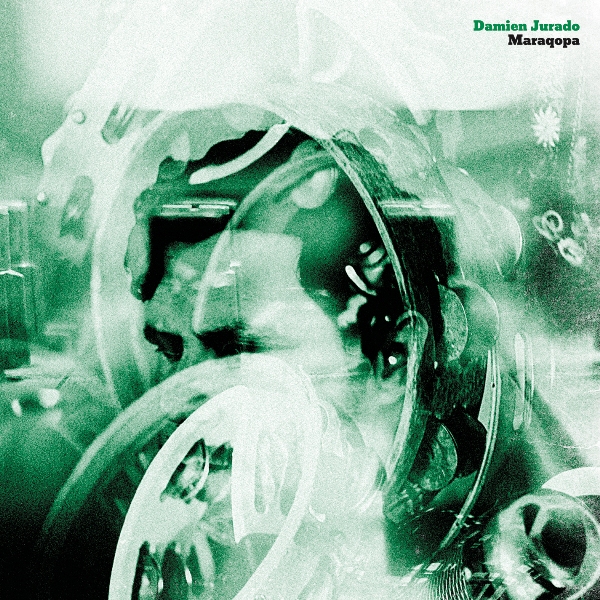My introduction to Damien Jurado was in 2007 when he opened for Okkervil River. He took the stage that night inconspicuously and rolled out a series of careful, contemplative songs on his acoustic guitar that, by the end of the set, had the audience hypnotized. Afterward I saw him leaning against a wall outside the venue, away from the crowds and looking at his phone. I chose to keep walking, probably to avoid a potential awkward situation, but also in small part because he seemed like too heavy of a guy to just approach for small talk. For years after, I had an image of Jurado as a traveling singer-songwriter with an impenetrable isolation. These days, he’s been breaking that mold with each subsequent album, but his latest work Maraqopa, is the biggest break yet.
One of the reasons why is that Jurado works once again with producer Richard Swift, whose collaboration brought a diversity of sound and atmosphere to his lyrical chops in 2010’s Saint Bartlett. He further elevates Jurado above the fray of your average acoustic-wielding singer-songwriter, but doesn’t take away from any of the intimacy. To say that they continue down the road they established on Saint Bartlett is not enough – they seem to jump miles down and play in this new found sonic landscape with glee and confidence. There are strong influences and some time-traveling that didn’t exist in his earlier work. “This Time Next Year” sees him try out the seductiveness of 60s style bossa nova. “Museum of Flight” has Jurado lifting his voice out of the breathy calm he normally sings in, and he sounds like a pop-inclined Neil Young.
It’s not just a matter of a new sound in the background, but that his approach to the songwriting has been tweaked. I don’t know if anyone expected “Nothing is the News” from him – it’s a long opener not because it’s full of his poetry, but because it drops into a classic 70s rock and roll jam session, with a convincing pulled-from-the-air/single mic sound. Lyrically, his concerns aren’t as personal and confessional on the first half of the album, instead attaching hooks to big declarations about humanity – “All of us light, all of us free,” or “Everyone a star,” or “We are songs to be sung.” They come through as earnest and full of personal value when accompanied by the call and response of a chorus of children, or backed with distant, dreamy keyboarding.
I can imagine part of his fan base missing that melancholy, personal edge to his poetry. It’s true that the sweeping sense of loss and outsider woe is not the star of the album. But Jurado’s been drawing from that well since the 1990s. It may not ever be in danger of drying up, as that’s still what he does best, but it’s important that on album 10 he’s tapped into an interesting new reserve. This wouldn’t mean anything if he didn’t pull it off, but Jurado knows how to be convincing, mesmeric and seamless in any form during his continuing evolution.
Besides, it’s not as if the album is stuck entirely in talking about the big ideas. For fans of Jurado’s work in loneliness, “Working Titles,” is a briskly moving soulful piece that builds up an image of an ex-lover’s bitterness until it crumbles to reveal a tender curiosity and sentimentality. First “You’re no him, but he’s you, only better,” then, in a quiet lull, “What’s it like for you in Washington?” The epiphanic turn makes it a conflicted bundle of feelings and a great relationship portrait. On an album heavy with meditations on life and the human condition, it stands out as comforting and easy to fall into.
These songs are probably Jurado’s most ambitious portraits yet in terms of ideas and eclecticism. It’s just that they aren’t solely portraits of nervous loners or troubled lovers anymore. They’re of the harder things, the more intangible feelings about life that still weigh just as heavily as personal anxiety on troubled minds.

